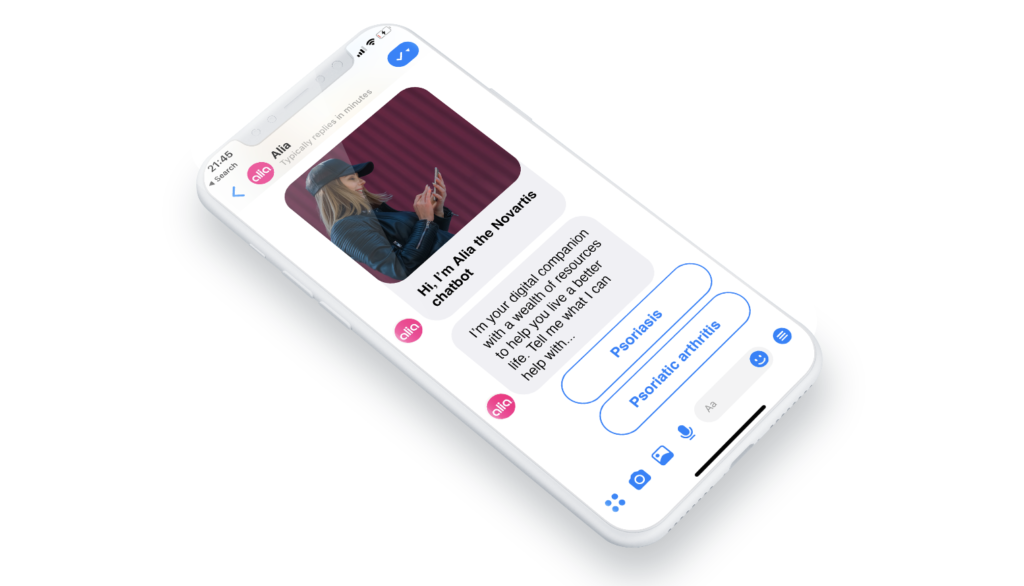
Despite massive technological change and incredible treatment breakthroughs, conversations remain the cornerstone of healthcare – where diagnosis begins, relationships form, and knowledge is exchanged. Today, Conversational AI tools are poised to transform these fundamental interactions, offering personalized, efficient, and accessible pathways to health engagement. Let’s explore how conversational AI is not just redefining the present landscape but is also shaping the future of healthcare engagement.
Engaging Healthcare Professionals (HCPs) with Conversational AI
For healthcare professionals, time is a luxury. Conversational AI emerges as a pivotal tool in streamlining their daily workflow. AI-driven platforms can now deliver medical insights, drug information, and patient data analysis with unprecedented speed. For instance, AI chatbots in Electronic Health Record (EHR) systems can accurately interpret voice commands, allowing HCPs to update patient records hands-free, thereby reducing clerical burdens and enabling more time for patient care.
Medical education is another area where conversational AI is leaving its mark. Platforms like GIBLIB, which uses AI to curate educational content for doctors, are revolutionizing the way HCPs learn and stay updated with the latest medical advancements.
Determining Patient Intent with Conversational AI
Understanding patient intent is crucial for effective healthcare delivery. Conversational AI, through natural language processing (NLP), deciphers patient input to grasp their concerns accurately. This technology powers symptom checkers like Babylon Health’s AI, which guides patients through a series of questions to understand their symptoms and provide relevant advice or care directions.
By analyzing patterns in patient queries, conversational AI also aids in predicting health trends and potential outbreaks, as evidenced by the AI-powered health alerts from platforms like HealthMap, which scans online content for disease outbreak indicators.
Using Conversational AI to Link to Live Sales Support, MSLs, and Patient Programs
Pharmaceutical companies are harnessing conversational AI to bridge the gap between patients and live sales support or Medical Science Liaisons (MSLs). AI chatbots can qualify leads, direct HCPs to the most relevant information, and even schedule appointments with sales representatives or MSLs.
For patient support programs, AI chatbots provide a 24/7 touchpoint for patients, offering medication reminders, adherence support, and answers to non-critical queries. Companies like Novartis and Sanofi are investing in patient support chatbots, recognizing the role these AI assistants play in improving patient outcomes.

Clinical Trial Recruiting and Conversational AI
Clinical trials are the lifeblood of medical innovation, yet recruiting and retaining participants remains a challenge. Conversational AI is proving to be an invaluable ally in this arena. AI chatbots can engage potential participants through medical forums and social media, offering information about relevant clinical trials.
Moreover, AI can pre-screen candidates based on inclusion and exclusion criteria, saving time and resources. Antidote is one such service that matches patients with clinical trials using an AI-driven questionnaire.
3-5 Year Possible Evolution of Conversational AI in Patient Experience
Looking ahead, conversational AI is poised to become even more intuitive and integrated into patient care. We can expect a future where AI assistants are standard across patient touchpoints, providing a seamless, personalized patient journey from initial query to treatment and follow-up.
In the next few years, AI could be coordinating entire health journeys, scheduling appointments, and even predicting patient needs before they arise. With advancements in machine learning, AI chatbots are expected to become more empathetic, offering comfort and support to patients in distress, akin to the therapeutic bots like Woebot.
Moreover, the integration of AI with other technologies like IoT devices could see conversational AI playing a central role in remote patient monitoring and telehealth. Real-time health data collected from wearables could be analyzed by AI to provide instant feedback and alerts for both patients and HCPs.
Conclusion
The trajectory of conversational AI in healthcare is clear – it’s not just a passing trend but a paradigm shift in how we engage with healthcare systems. From easing the administrative load on HCPs to offering round-the-clock support to patients, AI-powered conversations are setting a new standard for healthcare engagement.
As we navigate this new landscape, it’s imperative to keep an eye on the ethical and privacy considerations that come with AI. The future of healthcare engagement looks bright, and conversational AI is undoubtedly at its vanguard, driving us toward a more informed, empathetic, and efficient healthcare ecosystem.
In the end, while AI continues to evolve, the heart of healthcare remains unchanged – it’s about the conversation, the connection, and ultimately, the care that comes from it. Conversational AI is not replacing this human touch; it’s empowering it, one conversation at a time.





